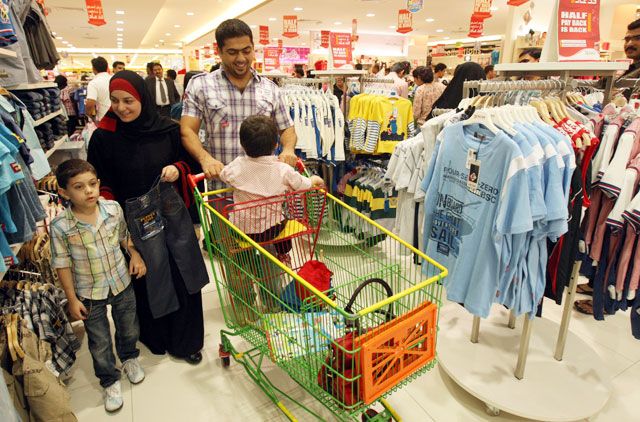Dubai: Consumers can breathe a sigh of relief as the cost of living in Dubai is already showing signs of slowing down, an economist told Gulf News.
Alp Eke, director and senior economist at the National Bank of Abu Dhabi (NBAD) economic department, said that the cost of housing, food and beverages, health care, restaurants and hotels have been on a decline.
The downtrend, which is expected to continue in the next few months, can be attributed to the appreciation of the US dollar against other currencies, the decline in oil prices and softening of property sales prices.
“From now on, inflation is in a declining trend. Consumers will be spending less from their pockets,” Eke told Gulf News.
According to the official figures released by the National Bureau of Statistics, the UAE’s consumer price index (CPI), a measure of change in the prices of goods and services, increased only marginally by 0.18 per cent in April 2015 compared to a month earlier.
A recent survey by Bayt.com showed that 50 per cent of UAE professionals in the UAE are not happy with their income, while the majority (87 per cent) are seeing an increase in the cost of living in the country.
The number of consumers who believe that the UAE is in recession also increased to 39 per cent in the first quarter of the year from 36 per cent a year earlier, according to another survey by Nielsen, a market research firm.
Eke, however, said that a closer look at the price changes in the items that make up the CPI basket of goods and services in Dubai would show that consumers have actually been spending less on their weekly or monthly groceries, home furnishings, out-of-home meals, hotel stays and doctor’s visits.
Inflation for food and beverage posted a .06 decline between March and April, alone, while recreation and culture, and miscellaneous goods and services dropped by .05 per cent and .27 per cent, respectively.
“If we exclude rent in [the scenario] and try to look at core [inflation], you can clearly see that it is declining. The imported components are declining [while] rents [which are the main driver of current inflation] are also slowing down. Consumers will spend less from their pockets,” Eke said.
There is also another indicator, called real effective exchange rate, or how much the UAE currency appreciated in comparison with the main trade partners.
“According to the latest data, as of March 2015, it is 121, which means the UAE currency has appreciated by 21 per cent with respect to the currencies of main trading partners. So, imported items are now cheaper to buy and we should expect imported inflation components to decline,” said Eke.
The UAE's Ministry of Economy and International Monetary Fund (IMF) had earlier forecast that the inflation rate this year will be at a manageable level, around 2.5 per cent.













